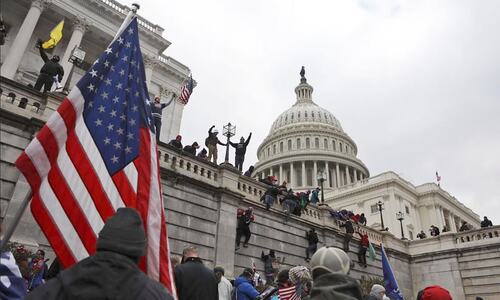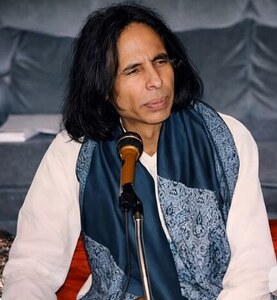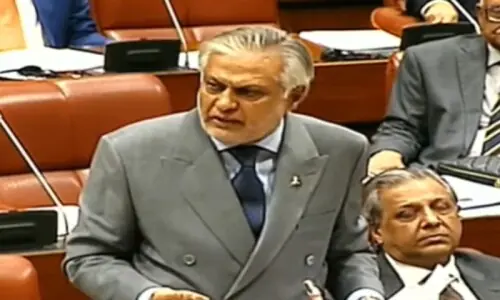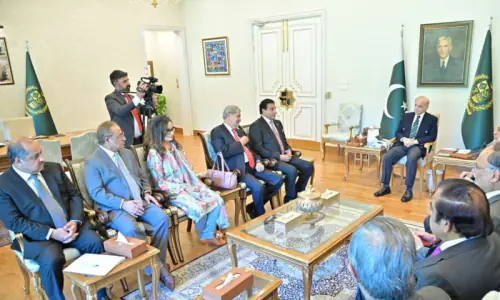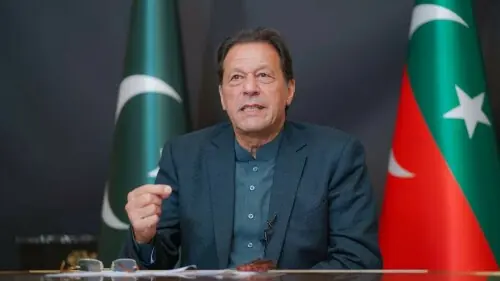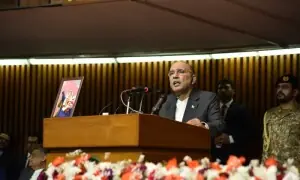
As the brother of former army chief Gen Asif Nawaz and a well-respected journalist and academic based in the United States, Shuja Nawaz is among the most credible writers on Pakistan’s military history with deep access to Pakistan’s military and political elite. His latest book, about the Pakistan Army’s relationship to the US over the last 10 years, has already caused a sensation beyond its contents after he divulged that the army worked to block its official launches in Pakistan. Eos spoke to him over email about what happened, his book and about recent developments…
You posted on Facebook on December 24 that your book launchings in Islamabad, Lahore and Karachi were cancelled, against your wishes, by the Pakistan Army. Can you tell us what happened?
My Facebook post speaks for itself. My book was designed to provoke discussion on key internal and external issues facing Pakistan, especially its important but bitter friendship with the United States. The cancellation by the military leadership (not by the civilian government) was arbitrary and unexpected. In my view, it created a distraction that was both sad and unnecessary.
You also wrote that you were personally asked to postpone the events to an undefined later date. Who requested you and do you still have hope that they might take place later?
Book launches take place when a book is released, not months later. Liberty Books has already released the book in the market. Public discussion has begun already and, as more reviews and commentaries appear, key issues may well be aired. I hope we move beyond the titillating incidents to more fundamental and critical issues facing Pakistan. I will continue to write and speak on key issues in Pakistan and the region.
When you were asked to postpone the events, what reasoning was given to you?
This is a question you should pose to the military leadership.
You’ve covered a number of controversies and sensitive matters in your book, including the role of the then ISI chief Gen Zaheer ul Islam in the 2014 PTI dharna [sit-in], the US operation against Osama bin Laden in Abbottabad, the Memogate controversy and the killing of journalist Saleem Shahzad in 2011, the so-called ‘DawnLeaks’ issue in 2016, the compromised war against terrorism and extremism and also how the military capitalises on the weaknesses of civilian governments. What, in your opinion, could be the reason for the Pakistan Army not being happy about what you’ve written?
See my answer to the question above. Ask the military leadership. The book not only tries to shed light on the past but, in my view, more importantly, it tries to open discussion on key current and future issues related to civil-military relations, the transactional relationship with the US, and Pakistan’s incomplete battle against internal militancy and terror. It also tries to identify key challenges and opportunities ahead so that Pakistan can strengthen the centripetal forces that will hold it together and allow it to prosper. Short-sighted actions by the civil government and the military will strengthen the centrifugal forces that have been fostered over the years by internal and external actors.
The strength of your writing is that your insights are often based on interviews rather than documents. Have any of your sources ever retracted or denied later what they’ve told you?
I use my journalism and academic skills to research issues and triangulate information to the best of my ability, using contemporaneous notes and interviews on the same topic with many persons, plus relying on access to key documentation. But one must be modest and humble in talking about one’s ability to get to the perfect truth. Principals speak based on their own memories and knowledge and those who have agreed to speak on the record have to stand by what they say. I was gratified that so many people, whom I had worked with over the past decade in the US, Europe and inside Pakistan, agreed to speak on the record. I hope more information will come out in due course from other sources.
Do you think US interference in the domestic policy of any country has ever led to good outcomes? And do you think the US-Pakistan trust deficit can be reduced by more aggressive engagement from the US?
A sea change is needed in US thinking about its role as a ‘Global Gulliver’ astride the earth. The domestic political calendar forces the White House to think short-term. It needs to rely on its experienced diplomatic and military experts more than pollsters. The sad thing that comes out of my research on this book is that Pakistan’s civil and military leaders were willing to work behind the scenes with the Americans while keeping their country people in the dark and, in the case of drone attacks, mislead them. The US can be a force for good when it does not tie its aid to short-term strategic interests. It has contributed to many useful institutions and activities in Pakistan over the years. It must trust Pakistanis to do the right thing and come up with practicable plans for their own development. But at the same time, it must hold them accountable.
The trust has been broken with the US. The withholding of Coalition Support Funds (CSF) and security assistance from Pakistan are not good signs. The release of the paltry International Military Education and Training (IMET) funds for training — in my view — is too little, too late. As former director general ISI Lt. Gen Ahmed Shuja Pasha told the Abbottabad Commission, Pakistan sells itself cheap.
One of your pieces of advice to the US in your book was to desist from taking the path of confrontation with Iran. In light of the recent US assassination of Iran’s Gen Soleimani in Baghdad, how do you see things playing out now? Do you think these developments might temper your optimism about Pakistan’s economy in the near term?
By attacking an official of the Irani government, the US has effectively moved to war with Iran. The after-effects will be far reaching and likely will isolate the US in the region, especially if Iraq asks it to vacate its bases in Iraq. President Trump has acted in his own personal interests in an election year and in the face of an impeachment trial. His threat to bomb 52 sites in Iran, including cultural sites, would be an illegal order to his military and against international law. Iran can cause massive damage to US interests throughout the region, including in Afghanistan. Moreover, it has time and location on its side. Pakistan risks being drawn into this conflict and may be forced to take sides. It was significant that US Secretary of State Mike Pompeo called the army chief and not the foreign minister to speak about Iran. This is the wrong signal to the people of Pakistan. Is America seeking to create an Egypt on the Indus? The economy is going through a difficult period. The true test will come as Pakistan tries to move up the ladder of IMF tranches. Will it seek waivers on Fund conditionalities or bite the bullet and take actions that will lay the seed for future growth?
How do you think Pakistan will look at the Afghanistan situation in light of any increased US conflict with Iran?
Pakistan has less potential control over what happens in Afghanistan than it imagines it has. Neither can it influence the Taliban as much as it would wish to. Recent moves by Pakistan to provide education and training to Afghan nationals are the right direction for Pakistan. Breaking the ‘Pakhtun Prism’ is important in building relations with all Afghans, across tribal and sectarian boundaries. Further, Pakistan can work with China to jointly work in Afghanistan and tie the economic growth of both Pakistan and Afghanistan together. On its part, the Afghan government needs to stop playing the India card with Pakistan. The neighbouring cousins need to live and thrive together.
What would you say to those who think that some of your recommendations are fanciful? For example, about the US persuading India to change its military stance from Pakistan to China while you also recommend that the US invest in CPEC, or about the politically explosive issue of the creation of more provinces in Pakistan and the call for military budget reform in Pakistan, when the military itself strongly resists any transparency on that front?
Call it what you will: fanciful, realistic or hopeful. Remember that Pakistan itself was seen as a fanciful idea. It became a reality when civil society woke up and demanded a country for itself. Eleven years from coining the name ‘Pakistan’ to achieving independence is not bad! The 53 million strong middle-class in Pakistan, including its 500,000-strong military, could be the engine that transforms Pakistan. Call me an optimist.
It is important that Pakistan leverage its strategic location to persuade the Americans to play a more meaningful role in resolving the Kashmir issue and reduce the risk of accidental war between Pakistan and India. American lip service will not do the trick. And Pakistani leaders should not be inveigled by cheap words alone, especially from the mercurial President Trump. Indian society is going through a violent internal revolution of its own. If it swings wide right, the prospects look grim for the Subcontinent. Pakistan needs to move to the centre. That is a better place to meet the enlightened members of Indian society.
Pakistan and its military both must learn to be more efficient and effective in the use of its resources. Economic stability and equitable growth will give Pakistan greater security than military might alone. Remember the lesson of the mighty Soviet Union that imploded despite having a huge and powerful military when its economy collapsed.
The internal balance of provinces is critical to keep Pakistan together. Why not debate these issues openly?
The interviewer is Dawn’s Editor Magazines
Published in Dawn, Books & Authors, January 12th, 2020


